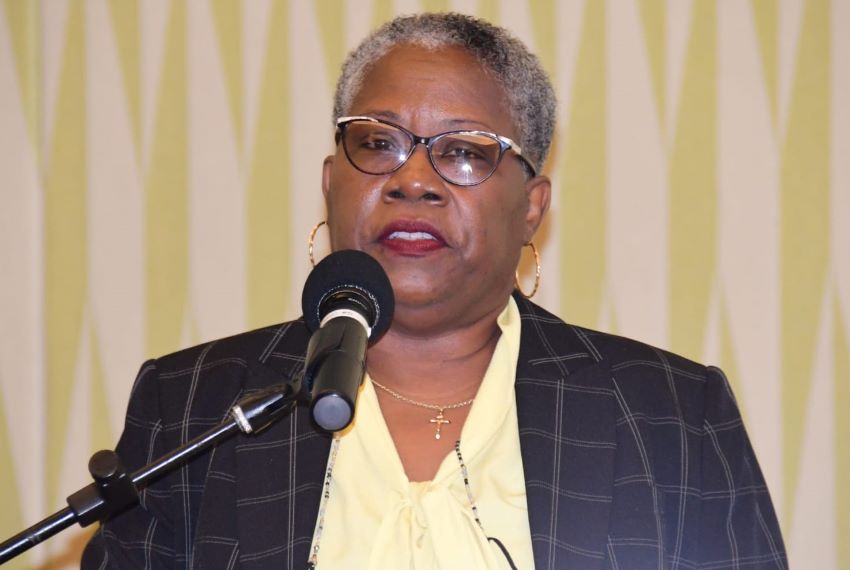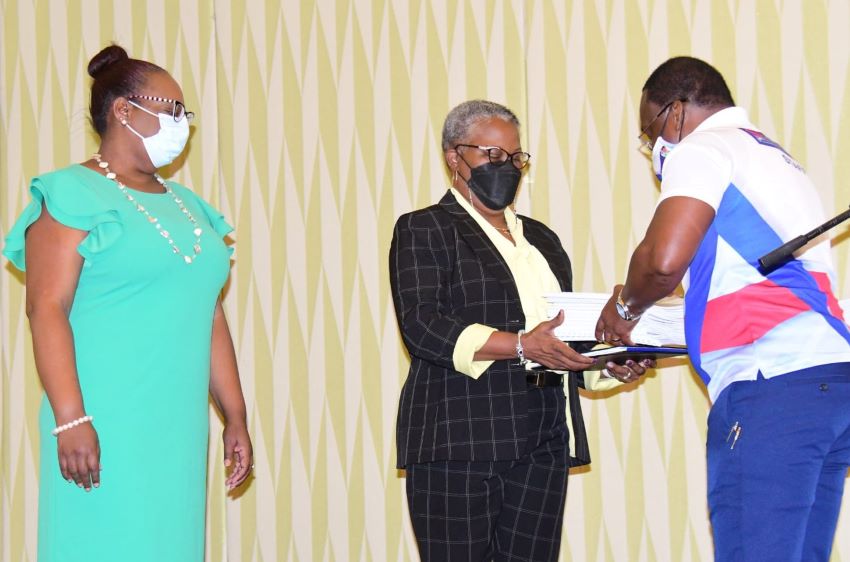
The training being executed by Supreme Counselling for Personal Development, to enhance the capacity of secondary school teachers to deliver life skills programmes has been lauded by the Ministry of Education, Technological and Vocational Training.
Deputy Chief Education Officer, Joy Adamson, delivering the keynote address at the start of a five-day training workshop at the Hilton Barbados, said today: “Teachers are critical to the successful delivery of the Health and family Life Education (HFLE) programme as they play a major role in the daily lives of children, operating in loco parentis.
“For those couple of hours that they are with you, you are the parent teaching them the life skills that they need to survive. It is therefore imperative that you be equipped with the strategies and tools necessary to assist our students as they navigate this acute and vulnerable part of their lives. They must become resilient.”
Further noting the Ministry’s commitment to enhancing the delivery of life skills, based on the HFLE curriculum in Barbadian schools, Mrs. Adamson said the initiative, being supported by the Maria Holder Memorial Trust, represented timely collaboration, as the Ministry was seeking to increase the number of teachers in schools, trained to meaningfully build life skills in students.
She pointed to research carried out by the World Health Organization, in 1994, and noted it found that with changes in many cultures and lifestyles, young people were not sufficiently equipped with life skills to help them deal with the increased demands and stresses they were experiencing. It also noted that traditional mechanisms for passing on life skills such as family and cultural factors were no longer adequate.
“The rapid rate of social and technological changes, the introduction of social media, Tik Tok, Instagram, all of these things throughout the world have made the lives of young people, their expectations, values, and opportunities very different from most of us in here,” said the Deputy Chief Education Officer, recalling that in that same year, Ministers of Education of the Caribbean Community (CARICOM) passed a resolution to support the development of a comprehensive approach to HFLE in the Caribbean.
She added that today this comprehensive life-skill programme focuses on providing students with requisite knowledge, skills and attitudes to become well-adjusted adults, capable of effectively functioning in and contributing to society well, as independent thinkers and responsible citizens.

“Many of the observations made 28 years ago and captured in the HFLE syllabus are relevant in 2022, since our young people now have to tackle life’s challenges in an ever-changing environment,” she said.
Alluding to the COVID-19 pandemic, Mrs. Adamson stressed that it had impacted everyone, including students and their families who are experiencing sudden changes in their social and financial norms.
“Students who never thought about where their next meal would come from or how school supplies would be provided or who even thought that their parents would always be there have found themselves newly poor, or unfortunately, orphaned. In many instances, the children do not have the resiliency skills to cope with and overcome the challenges presented by the pandemic,” she stated.
It was also pointed out that for students to compete on a global stage, they needed a well-rounded and comprehensive education.
She noted that along with academic aptitude they also required a set of skills referred to as life skills, she said: “To cope with evolving global environments they need therefore to be taught how to make good decisions, communicate effectively; solve problems, think critically and creatively; recognize the impact of their actions, take responsibility for their actions; make wise choices; and cultivate positive interpersonal relationships and self-confidence strategies.”
The Deputy Chief Education Officer, who further emphasised this was the duty of all teachers, noted that the participants already possessed this knowledge, but the Ministry believed they “need to be sensitised into how to pull the skills out of the students”.
